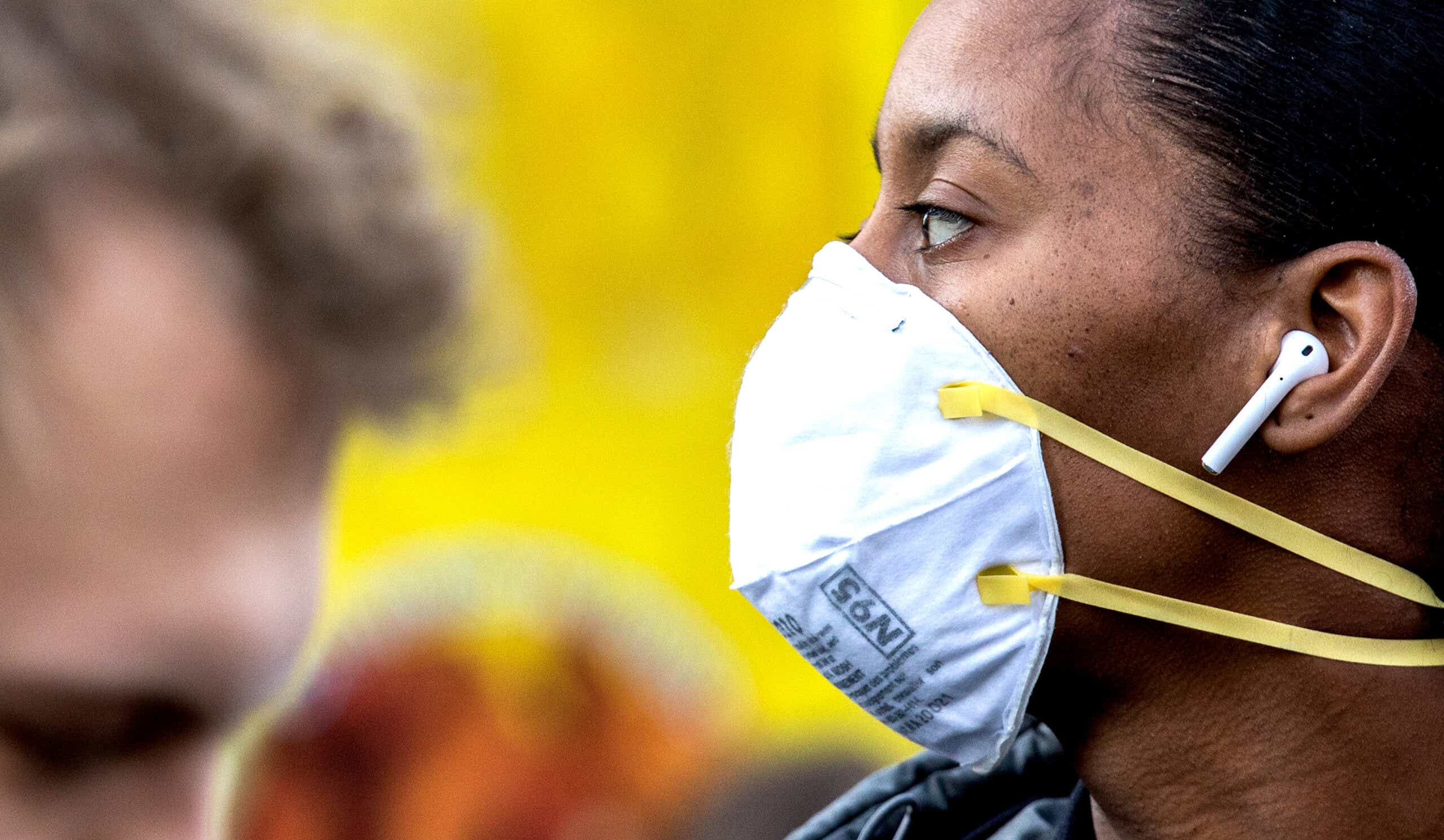Omicron isn't just more contagious than other Covid variants — it's moving faster than research can. We've just discovered that though a fourth vaccine dose boosts antibodies, it's likely not enough to prevent Omicron breakthrough infections. The CDC's being forced to make quick choices with sparse info, and in the meantime, we need to help ourselves as much as we can. With this in mind, health experts are warning against relying on cloth masks for protection against the virus — though some types of face masks are still among our best defenses. Here’s why.
Cloth masks aren't enough because the pores are too big
Always a triggering sentence — but this really is key here. The novel coronavirus is around 0.12 micrometers across, but according to research published in PeerJ, pore sizes in a sample of 20 cloth masks ranged from 80 to 500 micrometers across. So the virus can basically… slip right through.
Cloth masks also tend to be looser-fitting than surgical masks, meaning that there are a lot of airways through which the virus can penetrate. So even though they could have some use as a filter in the past, they just can’t cut it with Omicron.
“It’s very contagious,” Dr. Robert Wachter, chair of the Department of Medicine at the University of California, San Francisco, told NPR. "And the kind of encounter that you could have had with prior versions of the virus that would have left you uninfected, there's now a good chance you will get infected from it."
As NPR notes, early data from the University of Hong Kong has shown that Omicron multiplies 70 times faster inside our respiratory tract tissue than Delta and reaches higher levels in respiratory tract tissue 48 hours after infection versus Delta.
So which mask offers the most protection against Covid?
Experts recommend three-ply surgical masks, KN95 masks, or N95 masks, which offer more protection. They have a closer facial fit, and N95s are made of a polypropylene material that's melted and extruded into a tangle of hundreds of microscopic fibers.
As well as having tiny pores, the fibers in N95s are charged with static electricity, which makes them 10 times better at capturing particles. Properly fitted, masks approved by the National Institute of Occupational Safety and Health can filter up to 95 percent of air particles — and are also effective at filtering your exhalation for others’ safety.
Be aware — the efficacy of surgical masks can be compromised when the wearer has a beard. They’re still a better option than cloth masks, though.
What's the difference between N95, KF94, and KN95 masks?
They're functionally extremely similar, with the main difference being the country or organization that certified the standard of quality for the masks.
N95 masks, which look a little like a bird's beak and stick further out from the face than the other two, are certified by the National Institute of Occupational Safety and Health. They capture up to 95 percent of particles in the air.
KN95s meet China-specific standards, and KF94 masks meet the South Korean standard requirements (the "KF" stands for Korean filter, the "94" for the 94 percent of particles it filters). Per Dr. Ravina Kullar via The Strategist, "It combines elements of an N95 mask with those of a cloth mask, contouring close to the face with an adjustable band around the bridge of the nose.” KF94s tend to be popular thanks to their tentlike shape, which leaves a pocket of extra space between your mouth and the mask.
The key thing to consider when choosing between the three is how well they fit your face. The "seal" created by a close fit is your greatest line of defense — which is why even "correctly"-sized KN95s and KF94s work better for adults than kids, who tend to touch their mouths a lot, breaking the seal. (These are some better options for kids).
Can I reuse my surgical N95 mask?
Yes. If you leave it isolated in a breathable place at room temperature for 3-4 days, any viruses should be dead by then. But get rid of any masks soiled with blood or other bodily fluids — or that have broken straps/nose pieces. And don’t get them wet — liquid damages the precious mesh of charged fibers that makes N95s so effective.
And just to cover all your bases...
This is your reminder that from January 19, Americans can get up to four free rapid Covid tests sent directly to their homes. Order yours at covidtests.gov — you'll have to enter your name and address, and you'll receive the tests in seven to 12 days. If you're looking to purchase some great masks, we've outlined where to buy N95 and KN95 masks.









